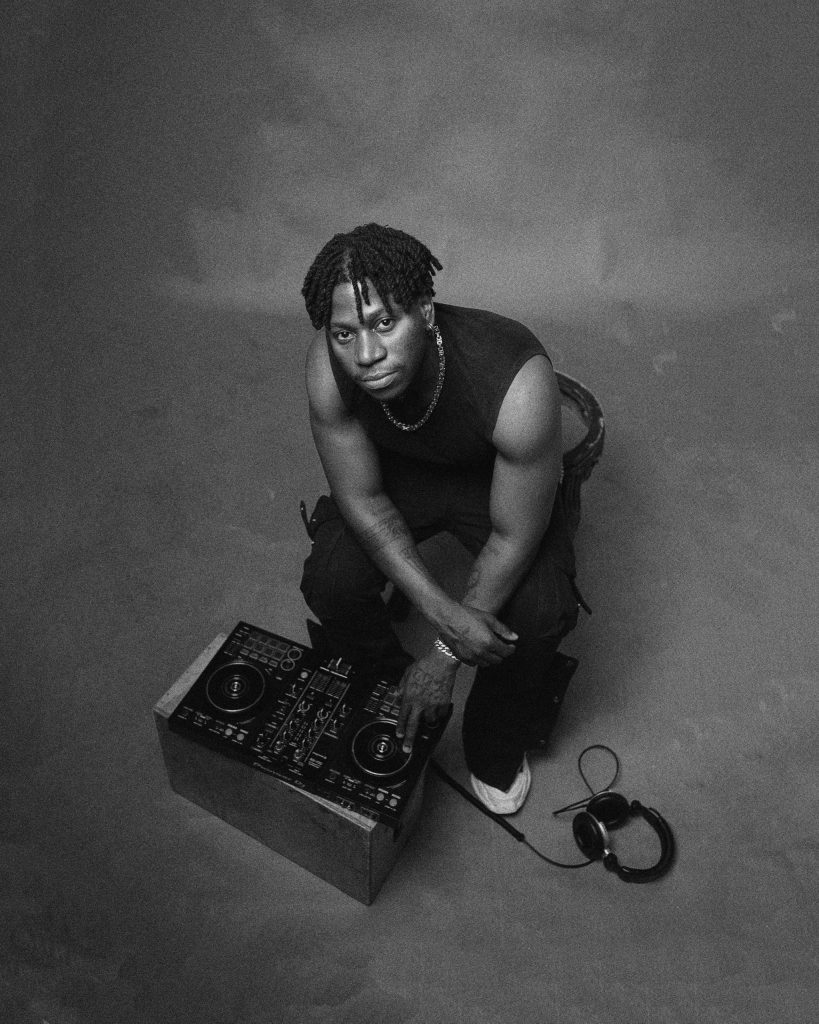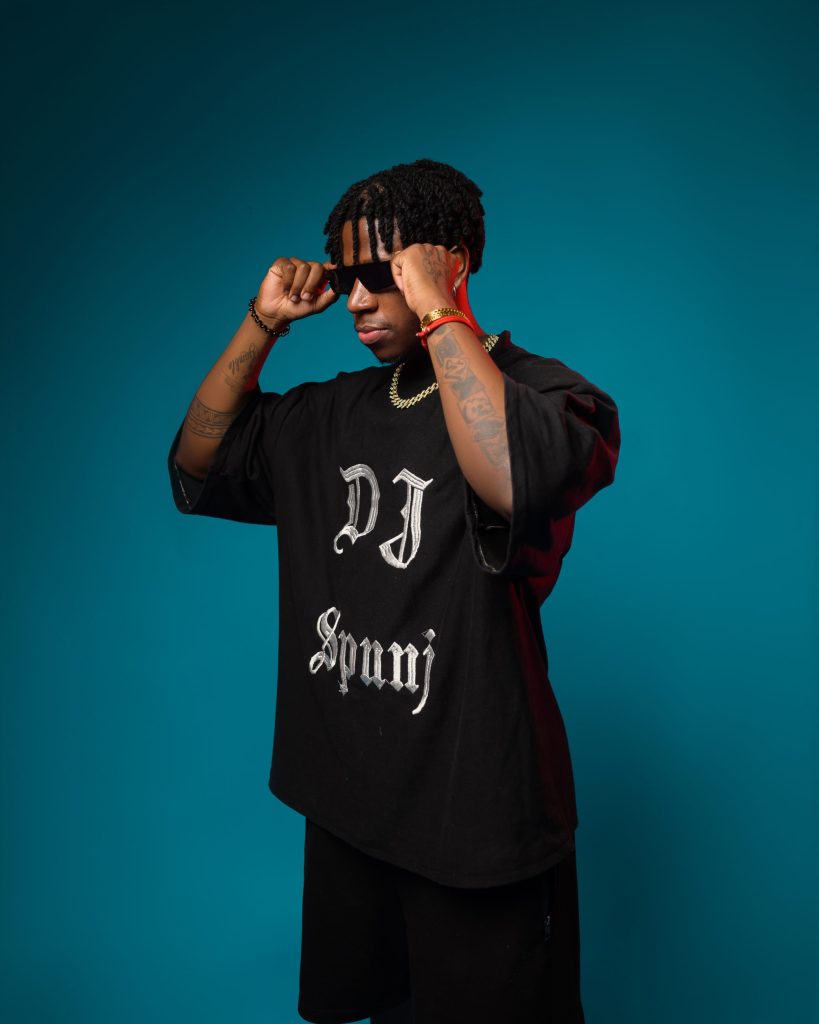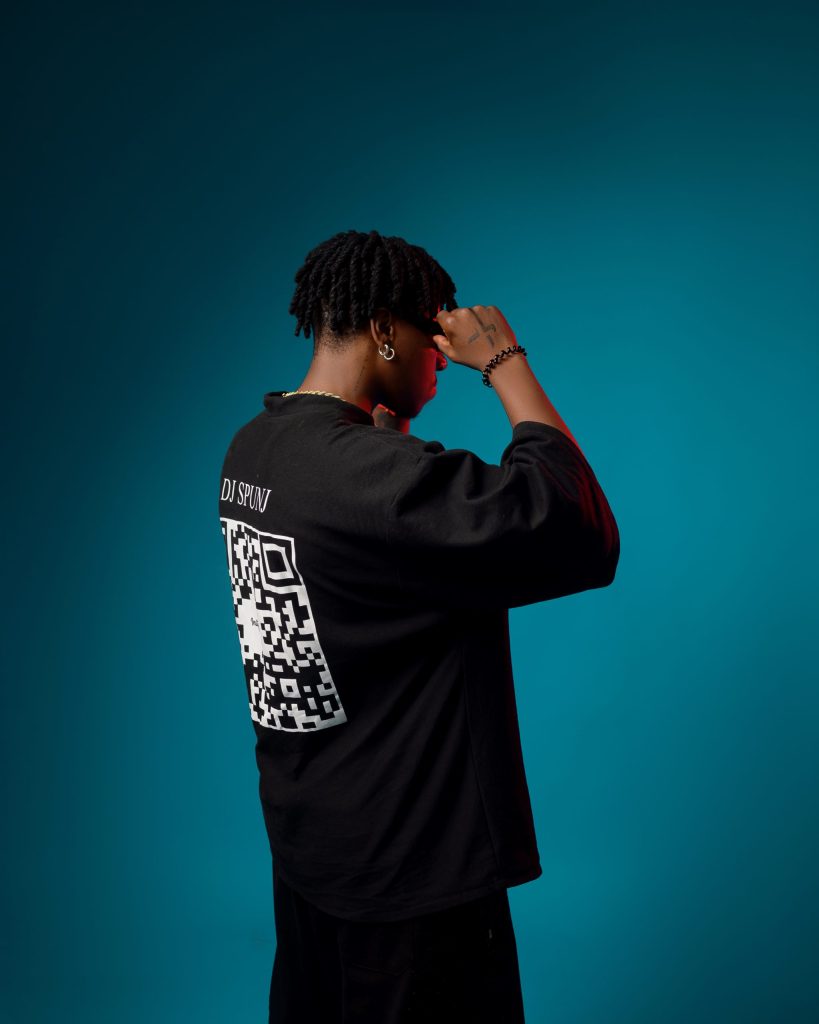There’s a quiet confidence about Spunj. The kind that doesn’t shout but pulls people in, the type built from late nights behind decks, a city’s heartbeat, and a belief that something new can come from Harare’s dance floors. When you meet Panashe Mbanje, better known as Spunj, there’s no pretense. He talks about music the way someone might talk about air, as if it’s something you live in, not something you own.
“DJing taught me how people feel,” he says. “Producing is teaching me how to translate that feeling.”
That translation is what’s putting Spunj on the radar right now. After years of shaping moods in Harare’s nightlife, he’s now crafting a sound that’s both rooted and futuristic, equal parts township soul and digital minimalism. He isn’t just playing other people’s songs anymore; he’s sculpting his own frequency.
To understand why that matters, you have to understand Harare. The city is alive with paradoxes: fast, social, chaotic, but somehow still intimate. Everyone knows someone, and on a Friday night, you’ll probably bump into three of them before you reach the bar.
For DJs like Spunj, the city’s chaos is both muse and teacher. “Harare crowds will tell you straight away if they’re not feeling it,” he laughs. “It’s a real-time feedback loop. You learn to listen deeper.”

That listening has shaped his sets; fluid blends of Amapiano, Deep House, and Soulful edits. But when he started producing, he realised he didn’t want to replicate what was already out there. “I wanted to find the feeling between the genres, not Amapiano, not House, but that space in between where people’s bodies just know what to do.”
His upcoming releases promise exactly that, tracks that feel like sunlight breaking through clouds, a slow, bass-heavy optimism. There’s groove, but also patience. A sense that the music is breathing.
The move from DJ to producer is a leap many try but few land gracefully. For Spunj, it wasn’t about ambition, it was about language.
“There’s only so much you can say with other people’s songs,” he reflects. “At some point, I needed my own words, my own sound.”
The transition began quietly during lockdown, when gigs disappeared and time seemed to stretch. What began as curiosity turned into a calling. “I’d spend hours on YouTube, just learning production theory. No shortcuts, no ego, just starting again.”
That humility comes through in his approach, methodical but expressive. “Every kick, every chord has to have a reason,” he says. “I’m not chasing viral; I’m chasing timeless.”
Being an artist from Zimbabwe comes with its own kind of pressure. Infrastructure is thin. The scene is still defining itself. But for Spunj, that’s the opportunity.
“People underestimate how much talent is here,” he says. “We have producers making world-class stuff from bedrooms with no equipment. There’s hunger here. Real hunger.”


It’s why he’s intentional about representing Harare in every project. His music, artwork, and collaborations all carry traces of home, the color, the slang, the city’s restless energy.
“I don’t want to sound like Johannesburg or London,” he says. “I want to sound like Harare on a Friday night, unpredictable, alive, spiritual.”
If there’s one thread that ties Spunj’s journey together, it’s faith. Not the performative kind, but a quiet conviction.
“Faith keeps me grounded,” he says simply. “The industry can make you doubt yourself. Faith keeps me creating even when no one’s watching.”
That mindset shows in how he moves, unhurried, focused, present. He doesn’t chase scenes; he builds them. Whether it’s working with local DJs, producing for vocalists, or mentoring younger selectors, Spunj’s approach is rooted in community. Across Southern Africa, a new wave of artists is redefining what “African electronic music” means. Spunj is part of that wave, not copying global sounds but conversing with them. He sees Zimbabwe as ready for a renaissance. “There’s so much talent, but we need to archive it, protect it, and build infrastructure around it,” he says. “Music is culture, and culture is power.”
The global interest in amapiano has already opened doors, but Spunj believes the next phase will be more personal. “People are going to start looking for the stories behind the sound. That’s where we come in.”
There’s no grand announcement or viral campaign, just consistent work. Spunj is producing, refining, and planning to release his first official singles in 2025. “It’s been years of learning,” he smiles. “Now it’s time to share.”

When asked what kind of legacy he wants, he pauses. “If someone hears my music and feels understood, that’s everything. I just want to make soundtracks for people’s real lives.”
In a time when everyone wants to go global fast, Spunj is taking the opposite route, local first, spiritual always.
Maybe that’s what makes him one to watch: not just because he’s next up, but because he’s tuned in. To his city. To his purpose. To the rhythm that connects them both.
Listen to Spunj’s latest release “Pakawanda” HERE
Written By Usher Takudzwa Nyambi.
Follow @theimullar on Instagram and X(Twitter) for more.


